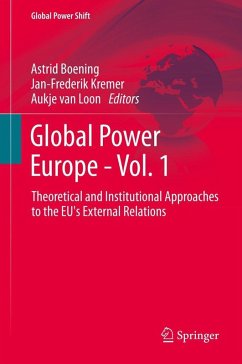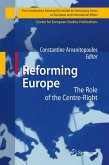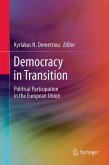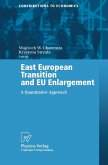Volume 1: The first volume "Theoretical and Institutional Approaches to the EU's External Relations" addresses the EU's overall external post-Lisbon Treaty presence both globally and regionally (e.g. in its "neighborhood"), with a special emphasis on the EU's institutional framework. It also offers fresh and innovative theoretical approaches to understanding the EU's international position. - With a preface by Alvaro de Vasoncelos (former Director European Union Institute for Security Studies)
Volume 2: The second volume "Policies, Actions and Influence of the EU's External Relations", examines in both quantitative and qualitative contributions the EU's international efficacy from a political, economic and social perspective based on a plethora of its engagements.
Dieser Download kann aus rechtlichen Gründen nur mit Rechnungsadresse in A, B, BG, CY, CZ, D, DK, EW, E, FIN, F, GR, HR, H, IRL, I, LT, L, LR, M, NL, PL, P, R, S, SLO, SK ausgeliefert werden.









